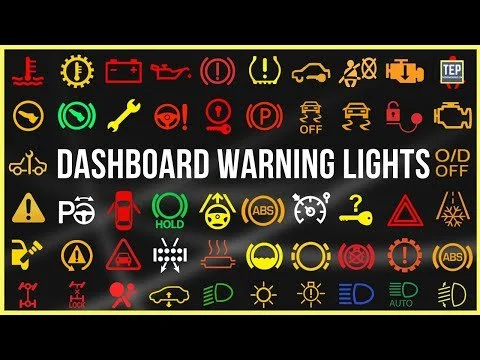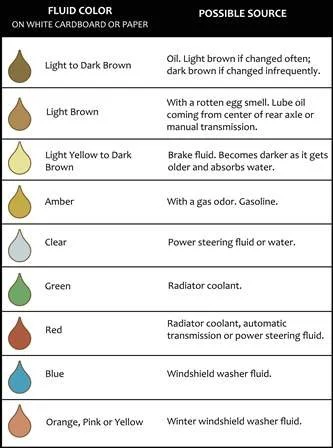Top Symptoms Your Vehicle Needs Professional Mechanic Attention
Owning a vehicle comes with its share of responsibilities, and recognizing the warning signs that your car needs professional attention is crucial for maintaining safety and performance. C&S Automotive in Rathdrum, ID, is here to guide you through the top 5 universal symptoms that indicate it’s time to visit a mechanic. Regardless of whether you drive a Jeep, Chevrolet, Ford, or Toyota, our expert team is ready to help. Learn more about how we service Jeep, Chevrolet, Ford, or Toyota vehicles.
1. Dashboard Warning Lights
What It Means
Dashboard warning lights are the way your vehicle communicates with you, signaling that something requires your attention. These lights are connected to sensors throughout your car that monitor critical systems such as the engine, brakes, and emissions. For example, the check engine light might illuminate due to something as minor as a loose gas cap or as serious as a failing catalytic converter. Similarly, an ABS light could indicate problems with the anti-lock braking system, compromising your ability to stop safely on slippery surfaces.
Ignoring these lights can lead to more severe complications. Modern vehicles are equipped with intricate electronic systems, and what starts as a minor sensor issue can evolve into a costly repair if left unaddressed. Taking these warnings seriously ensures that your vehicle continues to operate safely and efficiently, protecting both you and other drivers on the road.
Common Causes
Engine malfunctions
Faulty sensors
Low fluid levels
Brake system issues
Why It’s Important
Failing to address dashboard warning lights promptly can have short-term and long-term consequences. A neglected issue could lead to reduced performance or efficiency in the short term, such as poor fuel economy due to an engine running rich. Over time, these small problems can escalate, causing additional wear and tear on vital components like the transmission or engine, resulting in expensive repairs or even permanent damage.
More importantly, some warning lights signal immediate safety concerns. A malfunctioning brake system or engine overheating issue can put you and your passengers in harm's way. Addressing these lights quickly can help prevent accidents, improve vehicle longevity, and keep your maintenance costs under control. When a light comes on, it’s best to consult professionals like the team at C&S Automotive to diagnose and fix the issue accurately.
Link to Service Page: Explore our comprehensive services to diagnose and resolve dashboard warning lights.
2. Strange Noises
What It Means
Unusual noises from your car are often the first sign that something isn’t working as it should. For instance, a high-pitched squealing noise might indicate worn brake pads, while grinding sounds can point to serious issues like damaged wheel bearings or brake rotors. Engine knocking could be a result of low oil levels or problems with the timing chain, while clunking sounds from underneath your vehicle may suggest suspension issues such as worn-out bushings or loose components.
These noises don't just appear out of nowhere—they are the result of friction, wear, or failure of a component. While it may be tempting to ignore a sound that seems minor, doing so could allow the issue to worsen over time, leading to more expensive repairs or breakdowns.
Common Sounds & Causes
Squealing: Worn brake pads or serpentine belts.
Grinding: Brake rotor issues or wheel bearing wear.
Knocking: Problems with the engine or suspension system.
Why It’s Important
Strange noises are your car's way of telling you something is wrong, and addressing them early can save you significant time and money. For instance, worn brake pads that make a squealing noise are relatively inexpensive to replace, but if ignored, they can wear down completely and damage your rotors, doubling or tripling the cost of repairs. Similarly, a grinding sound from your engine might indicate a problem with the oil system—something that could cause catastrophic engine failure if left unattended.
From a safety perspective, certain noises can indicate immediate dangers. A grinding sound while braking could mean reduced stopping power, putting you at risk in emergencies. By bringing your vehicle to C&S Automotive as soon as you notice an unusual sound, you’re not only protecting your wallet but also ensuring your safety and peace of mind.
Link to Service Page: Learn more about brake and suspension services.
3. Decreased Performance
What It Means
If your vehicle feels sluggish, doesn’t accelerate like it used to, or struggles with tasks like climbing hills or towing, it’s a clear sign of decreased performance. These issues can stem from a variety of causes, such as a clogged air filter, dirty fuel injectors, or problems with the ignition system. Poor performance might also manifest in delayed gear shifts, rough idling, or reduced fuel efficiency, all of which indicate underlying issues in the engine, transmission, or other critical systems.
Decreased performance doesn’t just make driving less enjoyable; it also signals inefficiencies that can lead to further wear and tear. For example, an engine struggling to deliver power due to clogged injectors will work harder than necessary, causing unnecessary strain and potential overheating.
Common Signs
Poor acceleration
Weak braking power
Trouble maintaining a smooth ride
Common Causes
Engine inefficiency
Worn brake pads or rotors
Suspension or alignment problems
Why It’s Important
Addressing performance issues early can prevent more extensive damage to your vehicle. For example, a car with poor acceleration might have a failing spark plug or ignition coil, both of which are affordable to fix. Ignoring the problem, however, could lead to misfires, engine damage, and costly repairs down the line. Similarly, reduced braking performance caused by worn pads or rotors can quickly escalate into a safety hazard.
Decreased performance can also impact your vehicle’s fuel economy and increase emissions, costing you more at the pump and potentially failing emissions tests. By diagnosing and resolving performance issues promptly with the help of C&S Automotive, you’ll maintain a smoother, safer driving experience and avoid unexpected breakdowns.
Why It’s Important
Ignoring fluid leaks can have catastrophic consequences for your vehicle. Low oil levels due to a leak can cause severe engine damage, requiring costly repairs or even a full engine replacement. Similarly, a brake fluid leak can lead to complete brake failure, posing a significant safety risk to you and other drivers.
In addition to safety concerns, leaks can harm the environment by allowing hazardous substances to seep into the ground or water supply. By addressing leaks promptly, you’re not only maintaining your vehicle’s health but also doing your part to protect the environment. C&S Automotive can diagnose and repair fluid leaks efficiently, ensuring your car remains safe, reliable, and eco-friendly.
Link to Service Page: Get professional help for leaks and repairs.
5. Vibrations or Shaking
What It Means
If your vehicle vibrates or shakes while driving, braking, or idling, it’s a clear indication that something is amiss. Vibrations can stem from issues such as unbalanced or worn tires, misaligned wheels, warped brake rotors, or failing suspension components. For example, if you feel vibrations in the steering wheel, it might indicate uneven tire wear or alignment problems, while shaking during braking is often a sign of warped rotors or worn-out brake pads.
These symptoms can also be caused by more serious issues, such as drivetrain problems or failing motor mounts. Regardless of the cause, vibrations are a sign that your vehicle needs immediate attention.
Common Causes
Uneven tire wear or poor alignment
Warped brake rotors
Suspension problems
Why It’s Important
Ignoring vibrations can lead to increased wear and tear on critical components, resulting in higher repair costs down the line. For example, unbalanced tires cause vibrations and lead to uneven tread wear, shortening the lifespan of your tires and increasing the likelihood of a blowout. Similarly, misaligned wheels can reduce fuel efficiency and make handling more complex, posing a safety risk.
From a comfort perspective, driving a vehicle that vibrates or shakes can be exhausting and stressful, especially on long trips. By addressing the root cause of the issue with C&S Automotive, you’ll enjoy a smoother, safer, and more comfortable ride while avoiding further damage to your car’s components.
Trust C&S Automotive for All Your Vehicle Needs
At C&S Automotive, we pride ourselves on offering top-quality service to ensure your vehicle performs at its best. With our expert technicians, state-of-the-art equipment, and commitment to customer satisfaction, we’re the trusted mechanic shop for Rathdrum and the surrounding areas.
Whether you drive a Jeep, Chevrolet, Ford, Toyota, or any other make, our team has the knowledge and experience to keep your vehicle running smoothly. Don’t wait for a small symptom to turn into a big problem—schedule your service today!
4. Fluid Leaks
What It Means
Noticing fluid under your car is often a sign of a leak in one of your vehicle’s systems. Different fluids serve critical functions—oil lubricates the engine, coolant prevents overheating, brake fluid powers the braking system, and transmission fluid ensures smooth gear shifts. Leaks can occur due to aging seals, physical damage, or excessive heat causing components to crack or warp.
Each type of leak carries its own risks. For instance, an oil leak can lead to low oil levels, increasing engine friction and the risk of overheating. A coolant leak might leave your engine vulnerable to heat damage, while a brake fluid leak compromises your ability to stop safely. Identifying and addressing the type of leak is essential to protecting your vehicle.
Common Leaks
Oil: Dark brown or black fluid, often from the engine.
Coolant: Bright green, orange, or pink fluid, indicating radiator issues.
Brake Fluid: Clear or slightly yellow, posing a serious safety risk.
Transmission Fluid: Reddish fluid, signaling potential transmission issues.
Frequently Asked Questions About Vehicle Symptoms
-
If your check engine light comes on, schedule an inspection as soon as possible. While it could be a minor issue like a loose gas cap, it could also indicate a more serious problem.
-
No, even small oil leaks can lead to engine damage over time. It’s best to have leaks inspected and repaired promptly.
-
This could be caused by warped brake rotors or uneven tire wear. It’s important to have your brakes and suspension inspected to resolve the issue.
-
Most vehicles benefit from a check-up every 5,000 to 7,500 miles, depending on the manufacturer’s guidelines. Check your owner’s manual or consult our team for specifics.



